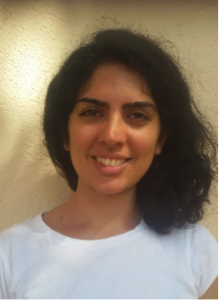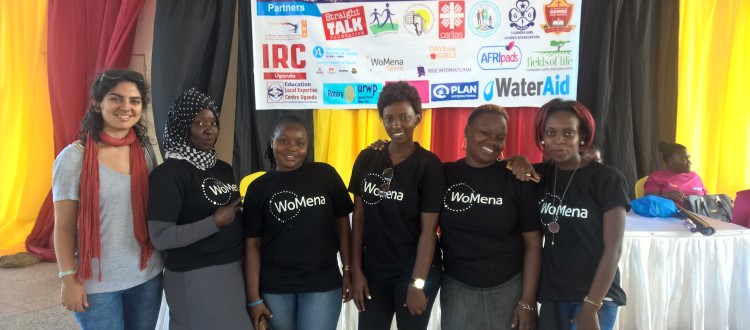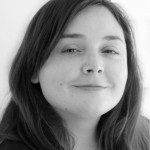Meet the team – Andisheh
We had a quick chat with Andisheh just as she was ready to leave Uganda and return to her country Iran after an internship with WoMena. We talked about her experience as an intern and what her feeling were looking back at the 4 months spent with WoMena.
 Andi, could you tell me why you chose to do your internship in WoMena?
Andi, could you tell me why you chose to do your internship in WoMena?
In my university, I was working on a project on menstrual health in Western Nepal. Gradually, I became more and more interested in improving women reproductive health in developing countries. I realised that there are so many myths and taboos surrounding menstruation. In Nepal specifically, women become separated from their families when they start menstruating. They have to live in sort of hut, and many of them die because of infections, diseases or even rape. Sometimes women get raped because they are alone in those huts, and there is no door that could be locked – it is not safe for them to stay there.
Afterwards, I wanted to continue working in that area, so I was searching for information about the menstrual cup and MHM (menstrual hygiene management) and saw WoMena’s website. They were looking for interns or volunteers. I emailed Maria (Hyttel) and this is how I got here to Kampala.
Why Uganda?
I realised that here, in Uganda, there are some restrictions and taboos about menstruation and issues regarding reproductive health. That was the reason I chose Uganda. My decision was also influenced by the fact that Uganda is a safe country to do an internship.
Which tasks were you performing as WoMena’s intern?
I was working on the Menstrual Cup Interventions Follow up Study and did the analysis of the collected quantitative data. I also worked on the data analysis of the ZOA project with refugees in Arua, and interviewed MCMAP (menstrual cup market accessibility project) participants who sell the menstrual cups in their communities and do sensitization. I was producing reports about policy and advocacy of the menstrual cup in Uganda which is not well documented in this country. Last but not least, I was a part of knowledge management team and I was looking for research gaps in reproductive health area.
How would you evaluate, overall, your internship experience here?
I learned a lot. I understand now how an NGO works. It was my first experience working in the public health sector in an international setting. Here I worked directly on the tasks which were relevant to my field, so I am really satisfied with my internship.
Have you improved or acquired any skills?
Yes, of course. I have gained a range of different skills from research to communication skills. I think, it is a good organization to expand your knowledge and gain experience – first-hand experience.
What is it like to work in WoMena team?
The team is very friendly. Your colleagues are also your friends. When you face a problem or challenge regarding your work you can easily go to your colleague and discuss it. They will be open to you and will help you. In some work places, workmates are competitive with each other, they just do their work and are closed to you.
And how did you find living in Uganda?
Living in developing countries has its own challenges because of security, power cuts or even lack of water. Living in these conditions makes you more patient. When you face a problem, you become more patient and look for solutions. For example, when there is no power, you need to think how you can continue working in your office.
What is the one thing you liked most of all about this internship?
I really liked my supervisor Laura because she gave me some opportunities to work in the area and the tasks I wanted. I told her: “I would like to talk to people…” And when there came an opportunity for the interviews, she came to me and said I could interview. I said, I liked to learn to do qualitative analysis, then she introduced me to the ZOA project. She and the programme and office manager were very supportive.
What is your message to the next WoMena interns?
I really recommend to interns to come to work to WoMena because they can acquire a wide range of skills. In some NGOs, they give only office work to interns and you don’t gain any skills. But here, you can go to field, talk to people and feel their problems.
Do you have any future plans? What would you like to do next?
I would like to have a job in which I try to find solutions to the roots of problems, not just the surface. Today we have many donors and NGOs, but we still struggle to address the roots of the issues.
Thank you very much, Andi. We wish you all the best in your professional and personal life!
Simona is part of WoMena’s Research and Communication team. She holds an MA degree in Sociology and Anthropology and has previously done some research in Iran. Currently, she is working on the Menstrual Cup Follow up study in Uganda and writes updates on WoMena’s activities.


